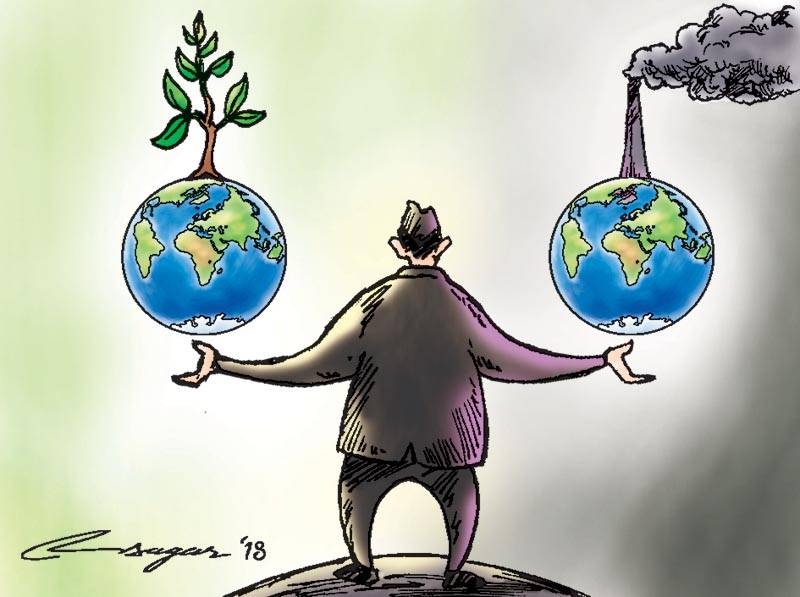
LONDON, August 8: An upcoming UN report on climate change gives the international community its clearest ever warning about the dangers of accelerating climate change, Britain's COP26 President Alok Sharma said on Sunday.
The chief for the November summit due to be held in the Scottish city of Glasgow told the Observer newspaper a report by the Intergovernmental Panel on Climate Change (IPCC) due on Monday would show the world was on the brink of potential disaster.
"This is going to be the starkest warning yet that human behaviour is alarmingly accelerating global warming and this is why COP26 has to be the moment we get this right," Sharma said.
"We can't afford to wait two years, five years, 10 years -- this is the moment," he added, explaining that unless nations "act now, we will unfortunately be out of time".
Sharma was forced to defend British fossil-fuel projects that include plans to license new oil and gas fields in the North Sea, which have proven embarrassing for Britain as it seeks to galvanise international action on climate change.
The Paris-based watchdog, the International Energy Agency (IAE), has warned all fossil fuel development and exploration must cease this year if the goal of limiting global warming to 1.5 degrees celsius is to be met.
"Future (fossil fuel) licences are going to have to adhere to the fact we have committed to go to net zero by 2050 in legislation," the COP26 president said.
"There will be a climate check on any licences," he added.
A series of catastrophic emergencies in recent weeks including floods in Europe and China, record temperatures in North America and forest fires around the world have focused minds on global warming, Sharma said.
"We're seeing the impacts across the world," Sharma said. "Every day you will see a new high being recorded in one way or another across the world," he added.
Sharma said he was "throwing the kitchen sink" at efforts to reach a deal on the contentious target to limit warming to 1.5 degrees, holding a large number of virtual and in-person meetings as he looks to bring 197 countries together in consensus on the aim.









